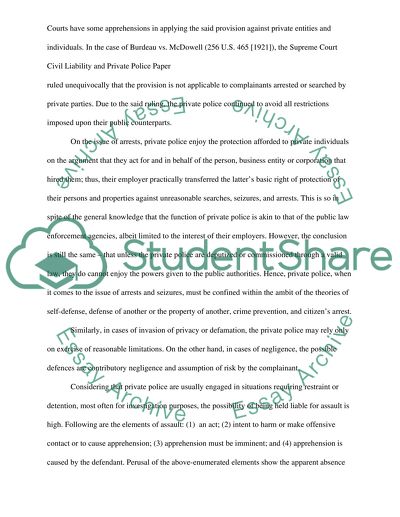Cite this document
(“Civil Liability and Private Police Paper Essay Example | Topics and Well Written Essays - 1500 words”, n.d.)
Retrieved from https://studentshare.org/law/1439634-civil-liability-and-private-police-paper
Retrieved from https://studentshare.org/law/1439634-civil-liability-and-private-police-paper
(Civil Liability and Private Police Paper Essay Example | Topics and Well Written Essays - 1500 Words)
https://studentshare.org/law/1439634-civil-liability-and-private-police-paper.
https://studentshare.org/law/1439634-civil-liability-and-private-police-paper.
“Civil Liability and Private Police Paper Essay Example | Topics and Well Written Essays - 1500 Words”, n.d. https://studentshare.org/law/1439634-civil-liability-and-private-police-paper.


